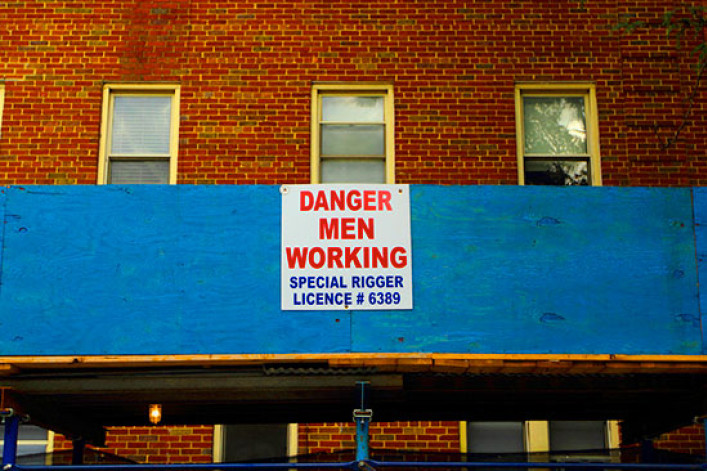Ask an Expert: Attack of the scaffolding

Q. The building next door is doing some repairs, and, without asking permission, they put up scaffolding/sidewalk shed that extends across most of the brownstone building I own.
Besides blocking the light into the first floor of my house, I'm also worried about safety. Someone--maybe even one of the workers--could climb up and enter through one of the second floor windows, which have no bars on them.
Can they really do this without my permission? What are my options? They said the work may take several months!!
A. Your frustration is well-founded, say our experts.
According to real estate attorney Scott Greenspun of Braverman Greenspun, the building next door had no right to unilaterally enter on your property with first obtaining either a license agreement from you or, if you were to refuse, get a court order under section 881 of the New York State Real Property Law.
A license agreement would set forth, among other things, "the work being done, how long the work will take, safety precautions, and [your neighbor's] indemnification and insurance obligations," says Greenspun. A court order, if needed, would include many of the same elements.
Real estate attorney Adam Stone of Regosin, Edwards, Stone & Feder confirms that "as managing agents and attorneys for building owners, we recommend that our clients in similar situations obtain non-disturbance agreements which should include an indemnification from the neighboring building owner any time there is such a request. We also insist on naming the client as an additional insured in all of the insurance certificates for the scaffolding and repair work."
You may also be entitled to compensation, says real estate attorney Jeffrey Reich of Wolf Haldenstein Adler Freeman & Herz.
"Depending on the impact on your property, you may want to approach the neighboring property owner about a reasonable license fee," says Reich.
If they balk, you could let a judge decide the matter.
"Some courts have held that a condition of granting such permission is the payment of a reasonable license fee for the property of the neighboring owner," says Reich.
As far as potential damage or theft claims linked to the work, even if you don't have an indemnification agreement, your residential insurance should cover any damage or theft, says apartment insurance broker Jeff Schneider of Gotham Brokerage.
You may want to keep your windows closed and locked for more than security and privacy reasons, notes pest control expert Gil Bloom of Standard Pest Management.
"On occasion rodent issues have occurred when garbage, including food, is left on the scaffolding by workers," says Bloom. "This may also attract ants and flies during warmer months and in a few cases even raccoons if you live near a park, including Central Park, or wooded area."
Trouble at home? Get your NYC apartment-dweller questions answered by an expert! Send us your questions.
























